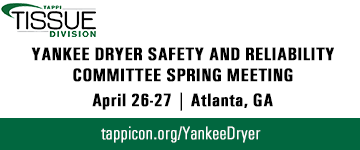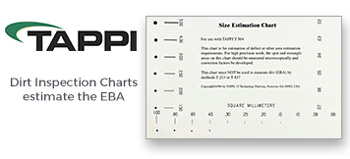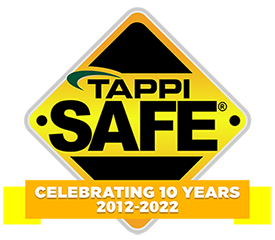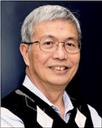 HONGHI TRAN, Course Chair, obtained his B.Sc. and M.Eng. in Ceramic Engineering from Shizuoka University, Japan, and his PhD in Chemical Engineering from University of Toronto (UofT), Canada in 1982. Honghi has been with the Department of Chemical Engineering and Applied Chemistry, UofT since 1987. He was professor from 1994 to 2019 and director of the Pulp & Paper from 2003 to 2022, and is currently a professor emeritus. During his nearly 4 decades of research tenure at UofT, Honghi established and directed 11 large industrial research consortia, focusing on issues related to fouling/corrosion in recovery boilers, causticizing/lime kiln chemistry, Na and S balances, borate autocausticizing, combustion and ash related problems in biomass boilers as well as mill waste disposal and utilization. He supervised/co-supervised over 100 graduate students and postdoctoral fellows; authored/co-authored over 320 refereed papers and book chapters and had 8 patents. Honghi has been an instructor of the TAPPI Kraft Recovery Course since its establishment in 1986 and has chaired it since 2006. He received numerous prestigious awards including the 2013 PAPTAC John S. Bates Gold Medal and the 2017 TAPPI Gunnar Nicholson Gold Medal. Honghi was inducted to the Paper Industry International Hall of Fame in 2017, the UofT Engineering Alumni Hall of Distinction in 2021, and the Pulp & Paper Canada’s Inaugural Hall of Fame in 2022. Honghi is a TAPPI fellow, a PAPTAC fellow, a Canadian Academy of Engineering Fellow and a registered professional engineer of Ontario.
HONGHI TRAN, Course Chair, obtained his B.Sc. and M.Eng. in Ceramic Engineering from Shizuoka University, Japan, and his PhD in Chemical Engineering from University of Toronto (UofT), Canada in 1982. Honghi has been with the Department of Chemical Engineering and Applied Chemistry, UofT since 1987. He was professor from 1994 to 2019 and director of the Pulp & Paper from 2003 to 2022, and is currently a professor emeritus. During his nearly 4 decades of research tenure at UofT, Honghi established and directed 11 large industrial research consortia, focusing on issues related to fouling/corrosion in recovery boilers, causticizing/lime kiln chemistry, Na and S balances, borate autocausticizing, combustion and ash related problems in biomass boilers as well as mill waste disposal and utilization. He supervised/co-supervised over 100 graduate students and postdoctoral fellows; authored/co-authored over 320 refereed papers and book chapters and had 8 patents. Honghi has been an instructor of the TAPPI Kraft Recovery Course since its establishment in 1986 and has chaired it since 2006. He received numerous prestigious awards including the 2013 PAPTAC John S. Bates Gold Medal and the 2017 TAPPI Gunnar Nicholson Gold Medal. Honghi was inducted to the Paper Industry International Hall of Fame in 2017, the UofT Engineering Alumni Hall of Distinction in 2021, and the Pulp & Paper Canada’s Inaugural Hall of Fame in 2022. Honghi is a TAPPI fellow, a PAPTAC fellow, a Canadian Academy of Engineering Fellow and a registered professional engineer of Ontario.
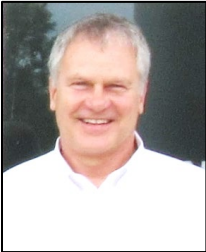 TOBIN ALT (B.S., TOBIN ALT is Vice President of Kadant Black Clawson’s Chemical Pulping Group located in Cincinnati, Ohio. He has a Chemical Engineering degree from Montana State University and also earned four varsity letters for also playing football with the Bobcats. Tobin has been in the industry since 1979, 40+ years, while working for Owens-Illinois in their Forest Products Division as Co-Op Engineer. Since that time he has worked for PCA, Dorr-Oliver, Ahlstrom, International Paper, Georgia-Pacific and Kadant in several different capacities ranging from various Engineering Roles; Process, Field, and Sales Engineer to Vice President. Tobin has extensive experience with lime kilns and recausticizing, along with black liquor evaporation and pulp washing.
TOBIN ALT (B.S., TOBIN ALT is Vice President of Kadant Black Clawson’s Chemical Pulping Group located in Cincinnati, Ohio. He has a Chemical Engineering degree from Montana State University and also earned four varsity letters for also playing football with the Bobcats. Tobin has been in the industry since 1979, 40+ years, while working for Owens-Illinois in their Forest Products Division as Co-Op Engineer. Since that time he has worked for PCA, Dorr-Oliver, Ahlstrom, International Paper, Georgia-Pacific and Kadant in several different capacities ranging from various Engineering Roles; Process, Field, and Sales Engineer to Vice President. Tobin has extensive experience with lime kilns and recausticizing, along with black liquor evaporation and pulp washing.
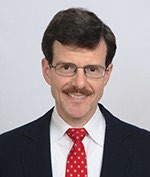 ROBERT (BOB) D. BARTHOLOMEW (B.S., Chemical Engineering, Bucknell University, Lewisburg, PA, U.S.A.) is a registered professional engineer who joined Sheppard T. Powell Associates LLC in 1986 as a senior engineer and is now an associate with the firm. He has provided consulting services in the areas of steam/water cycle chemistry, equipment inspections, chemical cleanings, makeup water treatment, cooling water treatment, and evaluations of deposition and damage in boilers, condensers, and turbines for the power, cogeneration, pulp and paper, steel, sugar, and other industries. Bob also has provided seminars for Power and Pulp & Paper Industry Clients. He is currently active in the ASME Research and Technology Committee for Water & Steam in Thermal Systems and has served as an instructor for the TAPPI Recovery Boiler Water Treatment course since 2002. He has authored or coauthored over 30 technical publications. At the 2009 International Water Conference, Bob received the Paul Cohen award for his 2008 presentation "An Introduction to Boiler Water Alkalinity Limits for Industrial Boilers".
ROBERT (BOB) D. BARTHOLOMEW (B.S., Chemical Engineering, Bucknell University, Lewisburg, PA, U.S.A.) is a registered professional engineer who joined Sheppard T. Powell Associates LLC in 1986 as a senior engineer and is now an associate with the firm. He has provided consulting services in the areas of steam/water cycle chemistry, equipment inspections, chemical cleanings, makeup water treatment, cooling water treatment, and evaluations of deposition and damage in boilers, condensers, and turbines for the power, cogeneration, pulp and paper, steel, sugar, and other industries. Bob also has provided seminars for Power and Pulp & Paper Industry Clients. He is currently active in the ASME Research and Technology Committee for Water & Steam in Thermal Systems and has served as an instructor for the TAPPI Recovery Boiler Water Treatment course since 2002. He has authored or coauthored over 30 technical publications. At the 2009 International Water Conference, Bob received the Paul Cohen award for his 2008 presentation "An Introduction to Boiler Water Alkalinity Limits for Industrial Boilers".
 MARTIN BEDDOWS is currently the Burner Product Manager for Metso Outotec in High Wycombe, UK. He received his B.Eng (Hons) degree in Mechanical Engineering from Kingston Polytechnic, London, UK in before entering Industry where he has accumulated over 30 years’ experience specializing in combustion and burner systems for a broad range of applications from Oil and Gas to Automotive as well as Kraft Pulp Mills. As a director of Kiln Flame Systems Ltd (KFS), Martin has been involved in the development of lime recovery kiln burners systems including use of alternative fuels such as hydrogen and lignin. He has authored/co-authored numerous presentations and papers for conferences including TAPPI PEERS and Nordic Wood Bio-Refinery Conference.
MARTIN BEDDOWS is currently the Burner Product Manager for Metso Outotec in High Wycombe, UK. He received his B.Eng (Hons) degree in Mechanical Engineering from Kingston Polytechnic, London, UK in before entering Industry where he has accumulated over 30 years’ experience specializing in combustion and burner systems for a broad range of applications from Oil and Gas to Automotive as well as Kraft Pulp Mills. As a director of Kiln Flame Systems Ltd (KFS), Martin has been involved in the development of lime recovery kiln burners systems including use of alternative fuels such as hydrogen and lignin. He has authored/co-authored numerous presentations and papers for conferences including TAPPI PEERS and Nordic Wood Bio-Refinery Conference.
JIM BREWSTER has recently retired from J. D. Irving, Limited in Saint John, New Brunswick,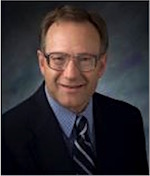 Canada, where he served as a Senior Project Advisor to the Pulp & Paper Division for a major continuous digester project. After earning his Bachelor of Science Degree in Chemistry from Portland State University and completing Minors in both Economics and Accounting, Jim has spent over 40 years in the kraft pulp industry. Throughout his career, Jim has worked as a Shift Supervisor for both Pulping and Recovery operations, a Pulp mill Superintendent; a Project Manager for a major kraft mill rebuild; a Mill Energy Manager; a Project Manager for the construction of a new recovery boiler. He also served Assistant Plant Manager of Engineering, Process Engineering, Capital Projects and Environment. After 20 years at the Georgia-Pacific Pulp & Paper facility in Camas, WA, Jim moved to eastern Canada to join the Irving Pulp & Paper Mill. He spent his first eight years there as Production Manager, and in 2001, assumed the role of Mill Manager, the position that he held until March 2014. During his tenure as Mill Manger, Jim has managed the company’s $400 million investment in a total plant rebuild and environmental improvement projects. Irving Pulp & Paper is now the only mill in North America to meet all current wastewater discharge guidelines without primary or secondary effluent treatment. As a result of these accomplishments, the company earned the Canadian Council of Ministers for the Environment (CCME) Award for pollution prevention and was more recently awarded a National Sciences and Engineering Research Council (NSERC) 2005 Synergy Award for Innovation, in partnership with the University of New Brunswick (Saint John). Jim has been an instructor of the Kraft Recovery Course since 2006.
Canada, where he served as a Senior Project Advisor to the Pulp & Paper Division for a major continuous digester project. After earning his Bachelor of Science Degree in Chemistry from Portland State University and completing Minors in both Economics and Accounting, Jim has spent over 40 years in the kraft pulp industry. Throughout his career, Jim has worked as a Shift Supervisor for both Pulping and Recovery operations, a Pulp mill Superintendent; a Project Manager for a major kraft mill rebuild; a Mill Energy Manager; a Project Manager for the construction of a new recovery boiler. He also served Assistant Plant Manager of Engineering, Process Engineering, Capital Projects and Environment. After 20 years at the Georgia-Pacific Pulp & Paper facility in Camas, WA, Jim moved to eastern Canada to join the Irving Pulp & Paper Mill. He spent his first eight years there as Production Manager, and in 2001, assumed the role of Mill Manager, the position that he held until March 2014. During his tenure as Mill Manger, Jim has managed the company’s $400 million investment in a total plant rebuild and environmental improvement projects. Irving Pulp & Paper is now the only mill in North America to meet all current wastewater discharge guidelines without primary or secondary effluent treatment. As a result of these accomplishments, the company earned the Canadian Council of Ministers for the Environment (CCME) Award for pollution prevention and was more recently awarded a National Sciences and Engineering Research Council (NSERC) 2005 Synergy Award for Innovation, in partnership with the University of New Brunswick (Saint John). Jim has been an instructor of the Kraft Recovery Course since 2006.
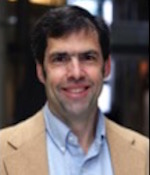 NIKOLAI DE MARTINI joined the University of Toronto (U of T) as an Assistant Professor in July 2017 where he conducts research relevant to chemical recovery and renewable energy. Prior to joining U of T, he has worked as a senior researcher at both Åbo Akademi University with Professor Mikko Hupa and at the Institute of Paper Science and Technology (IPST) at Georgia Tech. He received his BSc from Oregon State University and his MSc and PhD from Åbo Akademi University (ÅAU) in chemical engineering. In all of his positions, he has enjoyed working closely with the pulp and paper industry to apply a knowledge of process chemistry to solve industrial challenges. At IPST his research was focused on scaling in black liquor evaporators, and he has worked directly with mills on controlling mill chemistry to minimize evaporator fouling. At ÅAU he worked with the chemistry of black liquor combustion among other topics. He is currently working with William J. Frederick, Jr on a new book on Black Liquor Evaporation. In addition to his work in chemical engineering he is has been active in rowing and coaching rowing for the past 20 years.
NIKOLAI DE MARTINI joined the University of Toronto (U of T) as an Assistant Professor in July 2017 where he conducts research relevant to chemical recovery and renewable energy. Prior to joining U of T, he has worked as a senior researcher at both Åbo Akademi University with Professor Mikko Hupa and at the Institute of Paper Science and Technology (IPST) at Georgia Tech. He received his BSc from Oregon State University and his MSc and PhD from Åbo Akademi University (ÅAU) in chemical engineering. In all of his positions, he has enjoyed working closely with the pulp and paper industry to apply a knowledge of process chemistry to solve industrial challenges. At IPST his research was focused on scaling in black liquor evaporators, and he has worked directly with mills on controlling mill chemistry to minimize evaporator fouling. At ÅAU he worked with the chemistry of black liquor combustion among other topics. He is currently working with William J. Frederick, Jr on a new book on Black Liquor Evaporation. In addition to his work in chemical engineering he is has been active in rowing and coaching rowing for the past 20 years.
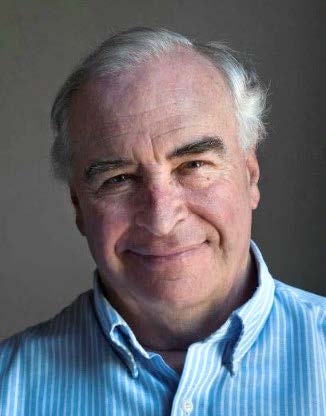 DOUG FORAN is a chemical engineering graduate of Dalhousie University and earned a Master of Engineering degree from McMaster University in Hamilton Ontario. Doug has worked in the pulp and paper industry for 50 years. For the past 44 years, he has worked in Savannah Georgia, initially for Union Camp Corporation and Kraton Chemical LLC. For the past 35 years, he has worked as a Recovery Engineer. In this capacity he worked with the contract suppliers of soap, tall oil and turpentine to help them improve their yield from the softwood pulped. He has consulted on soap and turpentine recovery in mills from Siberia to South America, but primarily in the southern United States. Over the past 10 years the mills that Doug has supported have increased tall oil recovery by about 55,000 tons / year and about 1,000,000 gallons / year of turpentine and supported additional pulp production of about 26,000 tons/year. He retired from full time employment in September 2018. In 2020 he formed Forest Chemical Recovery Consulting, LLC and continues to consult in the industry. Doug is past chairman of the Alkaline Pulping Committee for TAPPI and a recipient of the Distinguished Leadership and Service Award for the Pulping Division. He has authored several papers on by-products recovery issues in Pulp and Paper, Naval Stores Review and TAPPI Journal. He authored the chapter on Tall Oil Soap Recovery in Chemical Recovery in the Alkaline Pulping Processes, Third Edition, TAPPI Press, 1992. He has recently completed three chapters of a revision of the Naval Stores textbook to be published as an e-book by the Pine Chemicals Association. The chapters are on Turpentine Recovery, Soap Recovery and Soap Acidulation.
DOUG FORAN is a chemical engineering graduate of Dalhousie University and earned a Master of Engineering degree from McMaster University in Hamilton Ontario. Doug has worked in the pulp and paper industry for 50 years. For the past 44 years, he has worked in Savannah Georgia, initially for Union Camp Corporation and Kraton Chemical LLC. For the past 35 years, he has worked as a Recovery Engineer. In this capacity he worked with the contract suppliers of soap, tall oil and turpentine to help them improve their yield from the softwood pulped. He has consulted on soap and turpentine recovery in mills from Siberia to South America, but primarily in the southern United States. Over the past 10 years the mills that Doug has supported have increased tall oil recovery by about 55,000 tons / year and about 1,000,000 gallons / year of turpentine and supported additional pulp production of about 26,000 tons/year. He retired from full time employment in September 2018. In 2020 he formed Forest Chemical Recovery Consulting, LLC and continues to consult in the industry. Doug is past chairman of the Alkaline Pulping Committee for TAPPI and a recipient of the Distinguished Leadership and Service Award for the Pulping Division. He has authored several papers on by-products recovery issues in Pulp and Paper, Naval Stores Review and TAPPI Journal. He authored the chapter on Tall Oil Soap Recovery in Chemical Recovery in the Alkaline Pulping Processes, Third Edition, TAPPI Press, 1992. He has recently completed three chapters of a revision of the Naval Stores textbook to be published as an e-book by the Pine Chemicals Association. The chapters are on Turpentine Recovery, Soap Recovery and Soap Acidulation.
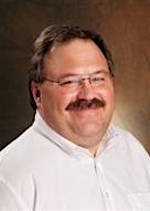 GLENN HANSON is currently in Pyro Technical Sales Support for Metso Outotec in the North & Central Americas Region. As such, Glenn provides technical support for aftermarket parts & services on rotary equipment in Pyro applications. He received a B.S. degree in Environmental Science from the University of Wisconsin – Green Bay in 1986, Glenn has worked over 30 years with a focus on lime recovery kiln systems in kraft pulp mills. Glenn has been involved in process design, presentations, sales, installation, training, start-up and troubleshooting on lime kiln systems worldwide. He is co-holder of a US Patent and continues R&D work on lime recovery kiln applications. Glenn has developed and presented more than 80 Lime Recovery Kiln Process/Operations & Maintenance Seminars; he now coordinates the annual TAPPI KilnCon Workshops & Seminars with TAPPI Local Sections across the US. He has authored/co-authored numerous papers and presentations for TAPPI technical meetings and major conferences and was an editor & contributor to the TAPPI Lime Kiln & Recausticizing textbook. Glenn returns for his twelfth year on the TAPPI KROS faculty. A 25+ year TAPPI Member, he has also served on various Local Section Executive Committees, is Past-Chairman of Gulf Coast TAPPI, recipient of the 2017 TAPPI Paul Magnabosco Award and is in the TAPPI Fellows Class of 2021. Glenn is a dedicated and active fan of Wisconsin sports teams including the Green Bay Packers & is an NFL Owner.
GLENN HANSON is currently in Pyro Technical Sales Support for Metso Outotec in the North & Central Americas Region. As such, Glenn provides technical support for aftermarket parts & services on rotary equipment in Pyro applications. He received a B.S. degree in Environmental Science from the University of Wisconsin – Green Bay in 1986, Glenn has worked over 30 years with a focus on lime recovery kiln systems in kraft pulp mills. Glenn has been involved in process design, presentations, sales, installation, training, start-up and troubleshooting on lime kiln systems worldwide. He is co-holder of a US Patent and continues R&D work on lime recovery kiln applications. Glenn has developed and presented more than 80 Lime Recovery Kiln Process/Operations & Maintenance Seminars; he now coordinates the annual TAPPI KilnCon Workshops & Seminars with TAPPI Local Sections across the US. He has authored/co-authored numerous papers and presentations for TAPPI technical meetings and major conferences and was an editor & contributor to the TAPPI Lime Kiln & Recausticizing textbook. Glenn returns for his twelfth year on the TAPPI KROS faculty. A 25+ year TAPPI Member, he has also served on various Local Section Executive Committees, is Past-Chairman of Gulf Coast TAPPI, recipient of the 2017 TAPPI Paul Magnabosco Award and is in the TAPPI Fellows Class of 2021. Glenn is a dedicated and active fan of Wisconsin sports teams including the Green Bay Packers & is an NFL Owner.
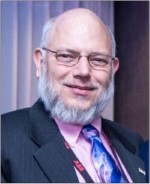 PETER HART is the Director of Fiber Science and Technology for Westrock. He has been with the company for 26 years. Peter received a BS in Chemical Engineering and Pulp and Paper Technology and an MS in Chemical Engineering from the University of Maine. He received a PhD in Chemical Engineering from Georgia Institute of Technology in 1992. Peter started working for Westvaco at its pulping and bleaching research center in Charleston, SC. From there, he moved to the Westvaco mill in Wickliffe, KY as a Production engineering in pulp, power and recovery. After assisting with the due diligence associated with the purchase of the Temple Inland mill in Evadale, TX, Peter moved to TX as a Technical Assistant to the Production Manager. At the merger of Westvaco and Mead, he returned to research out of Chillicothe, OH. After several small group and senior individual contributor positions, Peter became the Director of Fiber Science and Technology for MWV, later to become WestRock. Peter is currently the Director of the Fiber and Substate Group for WestRock Research & Development. He currently serves as Co-chair of the APPTI Next Generation Pulping Team and Co-chair Black Liquor Concentration Team. He has been a TAPPI member for more than 35 years and has chaired the Brownstock Washing short course for over 10 years. He has also presented in the Bleaching short course and won several technical awards from TAPPI. Peter has co-edited three major textbooks for TAPPI: The Bleaching of Pulp, 5th Ed, Brownstock Washing: Fundamentals and Practices, and Lime Kilns and Recausticizing: The Forgotten Part of a Kraft Mill.
PETER HART is the Director of Fiber Science and Technology for Westrock. He has been with the company for 26 years. Peter received a BS in Chemical Engineering and Pulp and Paper Technology and an MS in Chemical Engineering from the University of Maine. He received a PhD in Chemical Engineering from Georgia Institute of Technology in 1992. Peter started working for Westvaco at its pulping and bleaching research center in Charleston, SC. From there, he moved to the Westvaco mill in Wickliffe, KY as a Production engineering in pulp, power and recovery. After assisting with the due diligence associated with the purchase of the Temple Inland mill in Evadale, TX, Peter moved to TX as a Technical Assistant to the Production Manager. At the merger of Westvaco and Mead, he returned to research out of Chillicothe, OH. After several small group and senior individual contributor positions, Peter became the Director of Fiber Science and Technology for MWV, later to become WestRock. Peter is currently the Director of the Fiber and Substate Group for WestRock Research & Development. He currently serves as Co-chair of the APPTI Next Generation Pulping Team and Co-chair Black Liquor Concentration Team. He has been a TAPPI member for more than 35 years and has chaired the Brownstock Washing short course for over 10 years. He has also presented in the Bleaching short course and won several technical awards from TAPPI. Peter has co-edited three major textbooks for TAPPI: The Bleaching of Pulp, 5th Ed, Brownstock Washing: Fundamentals and Practices, and Lime Kilns and Recausticizing: The Forgotten Part of a Kraft Mill.
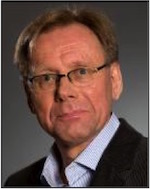 MIKKO HUPA is a Professor Emeritus at the Chemical Engineering Department of the Åbo Akademi University (ÅAU) in Turku, Finland. Mikko has supervised over 40 PhD theses and authored or co-authored more than 300 journal papers and other publications in the areas of combustion chemistry, flue gas emission reduction, black liquor combustion and gasification, and fluidized bed combustion. Mikko has a wide experience as an industrial consultant on issues of chemical aspects of combustion and energy processes. Mikko has been the President of the International Flame Research Foundation, IFRF, an international organization in the area of industrial combustion with 250 member organizations in almost twenty countries in the world. Since the last three years Mikko has been President of his university ÅAU. While very busy with this new role, Mikko still loves coming to the KROS Course in Florida in January. Besides engineering science Mikko likes to play racket sports and piano.
MIKKO HUPA is a Professor Emeritus at the Chemical Engineering Department of the Åbo Akademi University (ÅAU) in Turku, Finland. Mikko has supervised over 40 PhD theses and authored or co-authored more than 300 journal papers and other publications in the areas of combustion chemistry, flue gas emission reduction, black liquor combustion and gasification, and fluidized bed combustion. Mikko has a wide experience as an industrial consultant on issues of chemical aspects of combustion and energy processes. Mikko has been the President of the International Flame Research Foundation, IFRF, an international organization in the area of industrial combustion with 250 member organizations in almost twenty countries in the world. Since the last three years Mikko has been President of his university ÅAU. While very busy with this new role, Mikko still loves coming to the KROS Course in Florida in January. Besides engineering science Mikko likes to play racket sports and piano.
 JOHN B. JOHNSON II received his B.Sc. degree in Mechanical Engineering from General Motors Institute in 1978. He joined Goslin-Birmingham in 1981 as a Field Service Engineer and eventually became the Recausticizing Product Manager. Since then, he has also worked for Thermo Black Clawson, Kadant, Eimco, Dorr-Oliver Eimco, FLSmidth, Metso and Valmet, from where he recently retired. In all cases, his job focus was recausticizing. Over the years, John has been involved in product development, including various types of disc filters used in causticizing plants. John has designed both sedimentation and filtration based recaust systems installed in kraft mills in North and South Americas and Asia, and participated in the installation, start-up and optimization of most of them. The experience has also allowed John to work with almost every type of equipment operating in the causticizing plant, including some that are no longer actively marketed.
JOHN B. JOHNSON II received his B.Sc. degree in Mechanical Engineering from General Motors Institute in 1978. He joined Goslin-Birmingham in 1981 as a Field Service Engineer and eventually became the Recausticizing Product Manager. Since then, he has also worked for Thermo Black Clawson, Kadant, Eimco, Dorr-Oliver Eimco, FLSmidth, Metso and Valmet, from where he recently retired. In all cases, his job focus was recausticizing. Over the years, John has been involved in product development, including various types of disc filters used in causticizing plants. John has designed both sedimentation and filtration based recaust systems installed in kraft mills in North and South Americas and Asia, and participated in the installation, start-up and optimization of most of them. The experience has also allowed John to work with almost every type of equipment operating in the causticizing plant, including some that are no longer actively marketed.
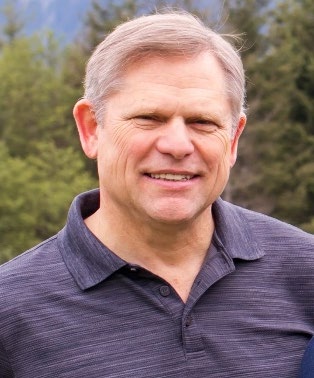 PAUL JOHNSON is Engineering Manager with LDX Solutions-Lundberg in Redmond, Washington. He earned BS degrees in Pulp and Paper Technology and in Chemical Engineering from the University of Washington. After working for Potlatch Corporation, he earned an MS degree in Chemical Engineering from the University of Idaho in 1981, modeling full mill mass and energy balances. He was a guest researcher at STFI in Stockholm, Sweden, and also worked for Scott Paper. In his thirty-six years with Lundberg he has managed a variety of pulp mill heat recovery, chemical recovery, and environmental projects, and presently concentrates on process evaluation and design, and project management. Areas of experience include blow heat and turpentine recovery, non-condensable gas collection and incineration, condensate segregation and stripping, liquor oxidation, waste gas incinerators, and gas scrubbing. He is a PE and TAPPI member, and has previously presented papers at TAPPI conferences and the Kraft Recovery Short Course.
PAUL JOHNSON is Engineering Manager with LDX Solutions-Lundberg in Redmond, Washington. He earned BS degrees in Pulp and Paper Technology and in Chemical Engineering from the University of Washington. After working for Potlatch Corporation, he earned an MS degree in Chemical Engineering from the University of Idaho in 1981, modeling full mill mass and energy balances. He was a guest researcher at STFI in Stockholm, Sweden, and also worked for Scott Paper. In his thirty-six years with Lundberg he has managed a variety of pulp mill heat recovery, chemical recovery, and environmental projects, and presently concentrates on process evaluation and design, and project management. Areas of experience include blow heat and turpentine recovery, non-condensable gas collection and incineration, condensate segregation and stripping, liquor oxidation, waste gas incinerators, and gas scrubbing. He is a PE and TAPPI member, and has previously presented papers at TAPPI conferences and the Kraft Recovery Short Course.
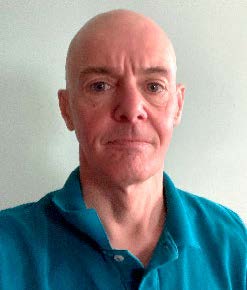 ANDREW K. JONES is a Senior Engineering Fellow at International Paper (IP) where his primary responsibility is to foster the implementation on new process innovations. Previously he was the recovery boiler SME, in this role he ensured safe and efficient operation of the approximately 40 recovery boilers currently operated by IP. He has been with IP since 1997. Prior to this time, he worked for ABB/Combustion Engineering leading their recovery boiler R&D efforts. He received his PhD from the Institute of Paper Chemistry in 1989 completing one of the earliest CFD models of the Kraft recovery boiler and is a co-author of the “Kraft Recovery Boiler” textbook. Andy is active in TAPPI, having led the Engineering Division, and was the conference chair for the TAPPI PEERS conference. He was the winner of the TAPPI Engineering Leadership and Service Award in 2004. He was also the conference chair for the ICRC (International Chemical Recovery Conference) and remains active on the organizing committee for this conference. Andy was named a TAPPI Fellow in 2016 and he received the Engineering Division Technical Award and Beloit Prize in 2018. He has served as an Adjunct Professor at the University of Toronto for more than 25 years. He was also an accomplished runner holding several ultra-marathon world records including the 100-mile record of 12:05:43. He now competes in cycling time trial races as his running legs are no longer as vibrant as they once were.
ANDREW K. JONES is a Senior Engineering Fellow at International Paper (IP) where his primary responsibility is to foster the implementation on new process innovations. Previously he was the recovery boiler SME, in this role he ensured safe and efficient operation of the approximately 40 recovery boilers currently operated by IP. He has been with IP since 1997. Prior to this time, he worked for ABB/Combustion Engineering leading their recovery boiler R&D efforts. He received his PhD from the Institute of Paper Chemistry in 1989 completing one of the earliest CFD models of the Kraft recovery boiler and is a co-author of the “Kraft Recovery Boiler” textbook. Andy is active in TAPPI, having led the Engineering Division, and was the conference chair for the TAPPI PEERS conference. He was the winner of the TAPPI Engineering Leadership and Service Award in 2004. He was also the conference chair for the ICRC (International Chemical Recovery Conference) and remains active on the organizing committee for this conference. Andy was named a TAPPI Fellow in 2016 and he received the Engineering Division Technical Award and Beloit Prize in 2018. He has served as an Adjunct Professor at the University of Toronto for more than 25 years. He was also an accomplished runner holding several ultra-marathon world records including the 100-mile record of 12:05:43. He now competes in cycling time trial races as his running legs are no longer as vibrant as they once were.
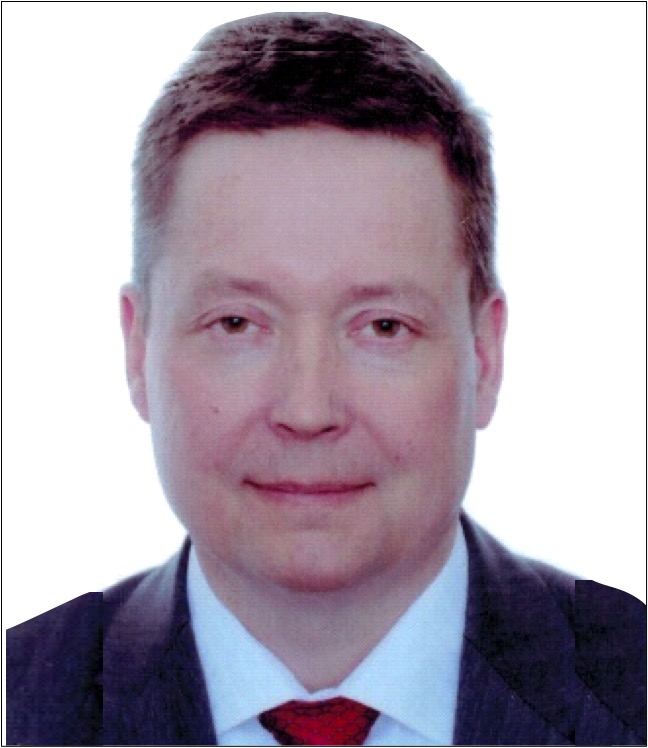 JARMO KAILA is Vice President for the Recovery area of ANDRITZ located in Alpharetta, GA. He has a M.Sc. degree from Helsinki University of Technology, Finland. Jarmo has over 30-year career in the industry, with positions related to various functions of the pulp mill recovery area. His specialty field has been black liquor evaporation and concentration, liquor byproducts separation and processing and the overall pulp mill chemical cycle. During his professional career he has worked for Tampella/Kvaerner (Valmet) and Andritz (Ahlstrom). Jarmo is the author or co-author of several patents on black liquor evaporation technology and related fields. He has also authored numerous scientific articles and presentations on professional magazines and conventions. In addition to his professional interests Jarmo is keenly interested, rides and occasionally competes in all modes of two-wheeled transportation; whether muscle or motor powered.
JARMO KAILA is Vice President for the Recovery area of ANDRITZ located in Alpharetta, GA. He has a M.Sc. degree from Helsinki University of Technology, Finland. Jarmo has over 30-year career in the industry, with positions related to various functions of the pulp mill recovery area. His specialty field has been black liquor evaporation and concentration, liquor byproducts separation and processing and the overall pulp mill chemical cycle. During his professional career he has worked for Tampella/Kvaerner (Valmet) and Andritz (Ahlstrom). Jarmo is the author or co-author of several patents on black liquor evaporation technology and related fields. He has also authored numerous scientific articles and presentations on professional magazines and conventions. In addition to his professional interests Jarmo is keenly interested, rides and occasionally competes in all modes of two-wheeled transportation; whether muscle or motor powered.
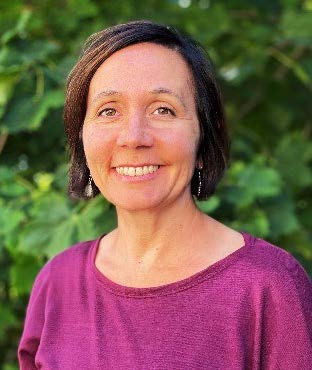 ANN PLANK is a Senior Process Engineer with LDX Solutions-Lundberg in Redmond, Washington. She earned BS degrees in Pulp and Paper Engineering and in Chemical Engineering from the University of Washington. In her twenty years with Lundberg, she has managed and designed a variety of pulp mill heat recovery, chemical recovery, and environmental projects, and presently concentrates on process evaluation and design. Areas of experience include blow heat and turpentine recovery, non-condensable gas collection and incineration, condensate segregation and stripping, liquor oxidation, waste gas incinerators, gas scrubbing, soap recovery, and tall oil recovery. Ann was a member of the BLRBAC Thermal Oxidation of Waste Streams advisory committee from 2009 to 2012
ANN PLANK is a Senior Process Engineer with LDX Solutions-Lundberg in Redmond, Washington. She earned BS degrees in Pulp and Paper Engineering and in Chemical Engineering from the University of Washington. In her twenty years with Lundberg, she has managed and designed a variety of pulp mill heat recovery, chemical recovery, and environmental projects, and presently concentrates on process evaluation and design. Areas of experience include blow heat and turpentine recovery, non-condensable gas collection and incineration, condensate segregation and stripping, liquor oxidation, waste gas incinerators, gas scrubbing, soap recovery, and tall oil recovery. Ann was a member of the BLRBAC Thermal Oxidation of Waste Streams advisory committee from 2009 to 2012
DOUG SINGBEIL 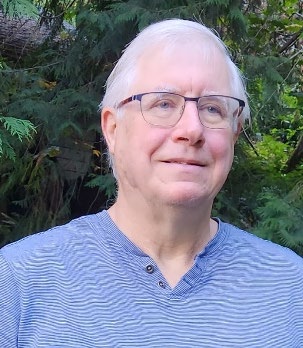
recently retired from FPInnovations, where he was employed for nearly 40 years, and is now a principal of a consultancy called GreenTree Strategies. He led investigations into a myriad of corrosion and materials related issues in the pulp and paper industry – stress corrosion cracking and corrosion of kraft continuous digesters, corrosion of equipment in recaust and pulping operations, corrosion of wall tubes and near-drum thinning of generating bank tubes, as well as cracking of composite tubes in recovery boilers. Other topics of research included corrosion of superheaters in biomass boilers and materials selection for forest-based biorefineries. Throughout his career with FPInnovations, Doug actively engaged with pulp and paper mills around the world; attending shutdowns and advising on repair strategies. Within FPInnovations, Doug research interests broadened, and he eventually managed groups responsible for research not only in corrosion and materials engineering, but also in thermochemical processes, bioenergy, and forest-based biorefineries. He served as Research Manager for Process Engineering and as Industrial Sector Leader for Bioproducts. He contributed to the Canadian-sponsored BioPathways project from 2010-2012 and served five years as a member of the board of directors for BioFuelNet, a Canadian university-based network of excellence. Doug has authored or co-authored many technical papers and presentations over his career
. Doug is a Fellow of both
TAPPI and NACE International (now AMPP)
.
 Kraft Recovery Operations Course
Kraft Recovery Operations Course
titled, Kraft Recovery Boilers, 3rd Edition, as a benefit of your attendance at this training event (a $244 value). It is sponsored by the Recovery Boiler Program R&D Subcommittee of the American Forest & Paper Association (AF&PA) and published by TAPPI Press.
If your'e interested in kraft recovery operations, you may be interested in participating in the spring and fall meetings of a TAPPI Partner, the Black Liquor Recovery Boiler Advisory Committee (BLRBAC).

